Произношение Dracarys (дракэриз) :
dɹˈakəɹiz
Ваш броузер не поддерживает аудио
дракэриз транскрипция – 9 результатов перевода
_
Dracarys.
Lord, cast your light upon us.
Убейте ее!
Дракарис!
Владыка, даруй нам свет.
_
Dracarys.
If I may, nephew, I encountered a situation with one of my lieutenants at the Stone Mill which may have some bearing…
Убить её!
Дракарис.
Если позволишь, племянник, у Каменной мельницы с одним из моих полководцев сложилась такая ситуация, которая…
You’ll be making it for me.
Dracarys.
Dracarys.
Вы будете делать его для меня.
Дракарис!
Дракарис!
They will be waiting a long time.
Dracarys.
We should be there by sundown.
Долго же им придется ждать.
Дракарис!
Мы должны быть там к закату.
Dracarys.
Dracarys.
He’ll be able to feed himself from now on.
Дракарис!
Дракарис!
Теперь он сможет питаться сам.
My reign has just begun.
Dracarys.
Your men have a choice:
Оно только началось.
Дракарис.
У вас есть выбор:
We can hold them off.
Dracarys!
Hold the line!
Мы сможем их отбросить.
Дракарис!
Держать строй!
Come on, you fucker.
Dracarys.
Flee, you idiot.
Лети сюда, тварь.
Дракарис.
Беги, идиот.
Breaker of Chains, and Mother of Dragons, sentence you to die.
Dracarys.
My— my lord…
Разрушительница Оков и Матерь Драконов, приговариваю вас к смерти.
Дракарис.
Ми… милорд.
Показать еще
Хотите знать еще больше переводов Dracarys (дракэриз)?
Мы используем только переведенные профессиональными переводчиками фразы Dracarys для формирования нашей постоянно обновляющейся базы. Это позволяет максимально точно переводить дракэриз не просто слова, но и целые фразы, учитывая контекст и особенности их использования.
Перевести новое выражение
Дракарис — слово на высоком валирийском, означающее «драконий огонь»[1]. Дейнерис Таргариен во время морского пути из Кварта в залив Работорговцев выучила своих драконов выдыхать пламя по команде; старинное валирийское слово было выбрано затем, чтобы никто не мог произнести его случайно[1]. Во время освобождения рабов в Астапоре Дейнерис скомандовала «дракарис» Дрогону, который сжег Кразниса мо Наклоза. Восставшие рабы также повторяли «дракарис», услышав это слово в устах Дейнерис[2]. Позже Дейнерис вновь использовала команду «дракарис», чтобы напугать Граздана мо Эраза[3].
Свобода! Дракарис! Дракарис!
— Дракарис! — повторили хором они, и это было самое сладкое слово, которое она слышала. — Дракарис! Дракарис! — Вокруг метались, рыдали и умирали работорговцы, и пыльный воздух был полон копий и огня.Буря мечей, Дейнерис III
В «официальной» версии высокого валирийского языка, разработанной лингвистом Дэвидом Питерсоном, слово «дракарис» означает только драконий огонь (точнее, «огонь, который производит дракон») и не является однокоренным со словами «дракон» (zaldrīzes) или «огонь, происходящий из любого другого источника» (perzys)[4]. Питерсон посчитал неудачным сходство слова «дракарис» с латинским словом draco (дракон), от которого происходит как английское dragon, так и русское «дракон» — в мире Мартина нет латинского языка, так что это сходство было истолковано как случайное совпадение.
Источники
0/5000
Результаты (английский) 1: [копия]
Скопировано!
zhorik
переводится, пожалуйста, подождите..
Результаты (английский) 2:[копия]
Скопировано!
Zhorik
переводится, пожалуйста, подождите..
Результаты (английский) 3:[копия]
Скопировано!
Lord
переводится, пожалуйста, подождите..
Другие языки
Поддержка инструмент перевода: Клингонский (pIqaD), Определить язык, азербайджанский, албанский, амхарский, английский, арабский, армянский, африкаанс, баскский, белорусский, бенгальский, бирманский, болгарский, боснийский, валлийский, венгерский, вьетнамский, гавайский, галисийский, греческий, грузинский, гуджарати, датский, зулу, иврит, игбо, идиш, индонезийский, ирландский, исландский, испанский, итальянский, йоруба, казахский, каннада, каталанский, киргизский, китайский, китайский традиционный, корейский, корсиканский, креольский (Гаити), курманджи, кхмерский, кхоса, лаосский, латинский, латышский, литовский, люксембургский, македонский, малагасийский, малайский, малаялам, мальтийский, маори, маратхи, монгольский, немецкий, непальский, нидерландский, норвежский, ория, панджаби, персидский, польский, португальский, пушту, руанда, румынский, русский, самоанский, себуанский, сербский, сесото, сингальский, синдхи, словацкий, словенский, сомалийский, суахили, суданский, таджикский, тайский, тамильский, татарский, телугу, турецкий, туркменский, узбекский, уйгурский, украинский, урду, филиппинский, финский, французский, фризский, хауса, хинди, хмонг, хорватский, чева, чешский, шведский, шона, шотландский (гэльский), эсперанто, эстонский, яванский, японский, Язык перевода.
На основании Вашего запроса эти примеры могут содержать грубую лексику.
На основании Вашего запроса эти примеры могут содержать разговорную лексику.
The eighth and last season is going to be more fiery than «dracarys.»
Восьмой и последний сезон будет более жарким, чем «дракарис».
Some people get it and some people don’t, and that one word is: Dracarys [«dragonfire»].
Некоторые люди знают его, некоторые — нет, и это слово: Дракарис (огонь драконов).
«Dracarys, just once more.»
Dracarys is the High Valerian word for Dragonfire and is said by Dany to encourage her dragons to start reigning down fire upon her enemies.
Это Высокий валирийский язык для залпа огня Дракона, и это то, что Дени говорит своим драконам, прежде чем они спалят все на своем пути.
Результатов: 5. Точных совпадений: 5. Затраченное время: 22 мс
Game
News
Forums
Shop
Esports
NewWoW Classic
Log in
Subscribe
Try Free
Try Free
Try Free
Play WoW Free to Level 20
Download WoW
Or
Learn more about the Free Trial.
WoW Classic requires a subscription. Details here.
Gameplay
Races
Classes
Warcraft Lore
All
Video
Audio
Comics
Books
Short Stories
The Story of Warcraft
Guides & Information
New to WoW
Returning Players
Realm Status
Recruit A Friend
Content Update Notes
Competitive
Mythic Raid Hall of Fame
Mythic Keystone Dungeon Leaderboards
PvP Leaderboards
Expansions
DragonflightNew
Wrath of the Lich King ClassicNew
Arena World Championship
Introduction
Schedule and Standings
News
Hall of Fame
Inside the World Championship
Mythic Dungeon International
Introduction
Schedule and Standings
News
Hall of Fame
Inside the Mythic Dungeon International
Resources
New to WoW
Returning Players
Realm Status
News
Most Recent
Gameplay
Races
Classes
Forums
Support
Community
Website & Mobile Feedback
It was a nice run, but a few weeks ago, after the longest wait since the series’ debut and five episodes preceding it, audiences finally watched the Game of Thrones series finale. With a king chosen, showrunners David Benioff and D.B. Weiss going off to run a new Star Wars series, now might be a good time to brush up on some High Valyrian. With this vocabulary, anyone can be one step closer to speaking well enough to make even the lovely, late, great Missandei proud.
When author George R.R. Martin envisioned what he could of the Valyrian language, he worked in broad strokes, imagining characteristic sounds and spellings. But he did not spend the decades that his inspiration J.R.R. Tolkien (an alumni of the University of Oxford and a philologist) did working tirelessly toward the invention of the Elvish language. The man who further developed High Valyrian for Game of Thrones was American artist, linguist and writer David J. Peterson. And in this article, Screen Rant readers well get to observe this lexicon of common Valyrian words all fans must use. Speaking of things all people must do:
Valar Morghulis
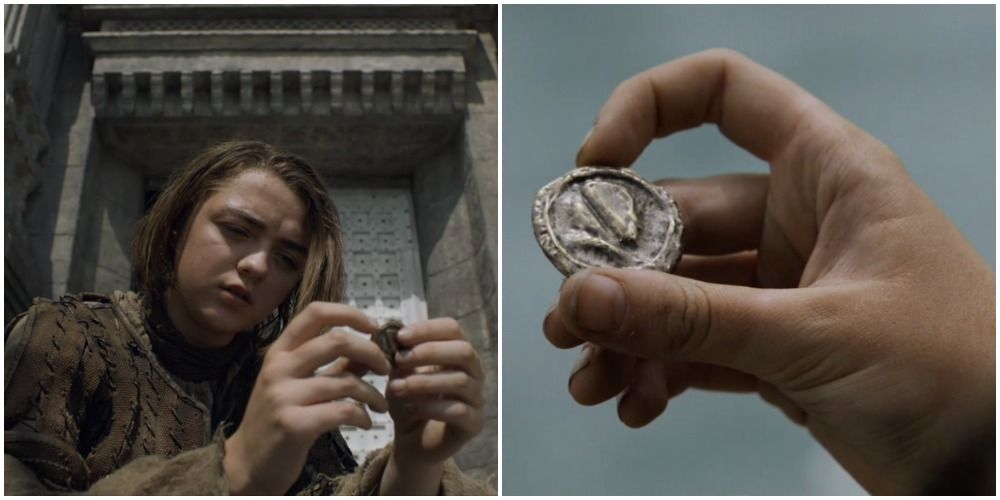
High Valyrian for «All men must die,» which is basically to say that «All men are going to die sooner or later.» It is a customary greeting and phrase in Essos traditionally replied to with «valar dohaeris.» This translates to «all men must serve.»
In the Valyrian-speaking world within the show, it can serve as a loose analogy of «Who wants to live forever?» This indicates an acceptance of an unpleasant reality. The word is also a common Braavosi greeting, particularly among assassin guilds such as the Faceless Men.
Dracarys
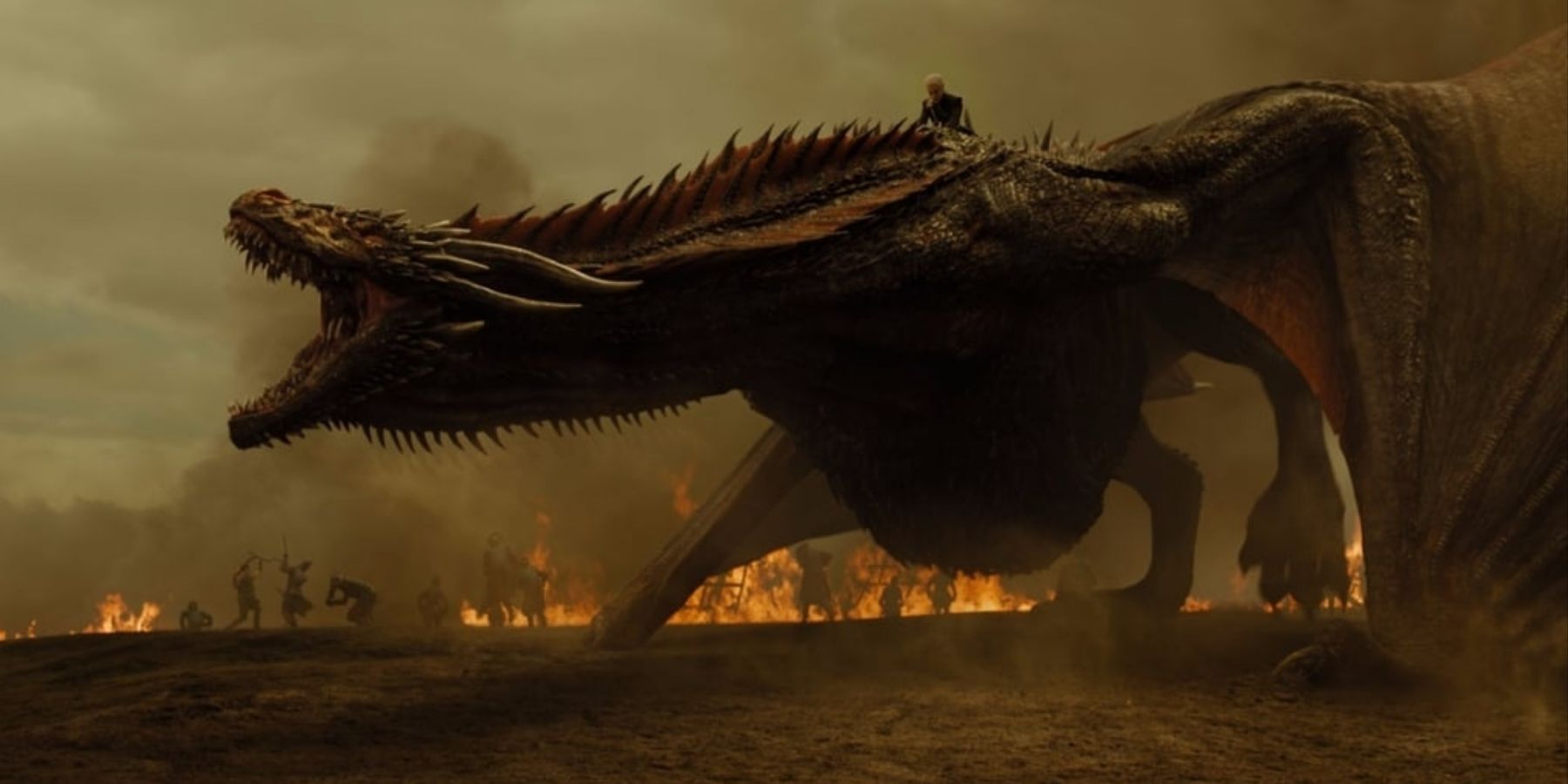
The High Valyrian word for «dragonfire,» commonly used in-universe by Daenerys Targaryen to command her dragons to breathe fire. Starting off saying the word to encourage a young Drogon to breathe fire and cook his own meat, she later graduates to teaching her hatchlings to breathe fire on command, which they then use to burn the warlock Pyat Pree alive.
She also uses the command to have an adolescent Drogon rain fire on those she perceives tyrants in both Essos and Westeros. «Dracarys» is also the last word of Missandei before she is executed by Cersei Lannister on the battlements of King’s Landing, a defiant cry for Daenerys to burn them all… that she and her army take a bit too far in the next episode. A synonymous phrase for this word is «zaldrizo perzys,» which literally translates to «fire of the dragon.»
Daor
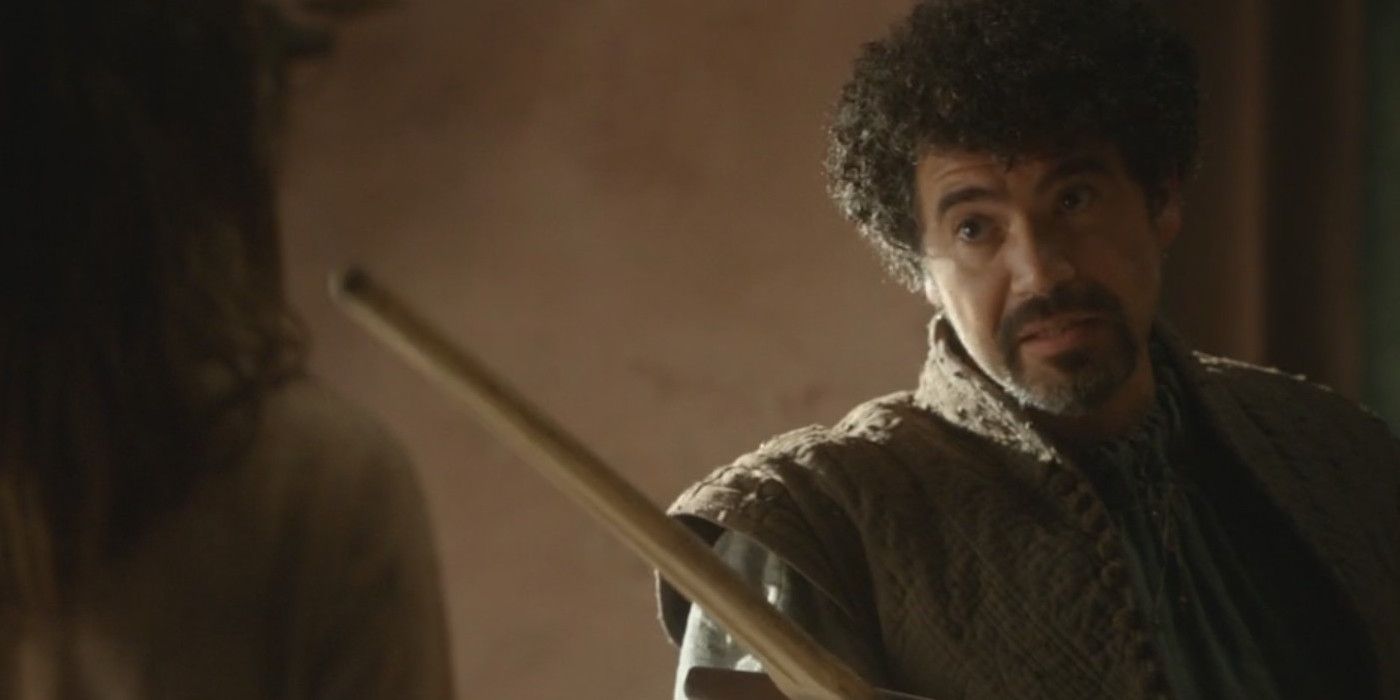
The High Valyrian word for «no» or «not.» This word generally occurs at the end of a sentence. One example of this in the show is the High Valyrian for Arya’s declaration to the god of death: «tubi daor,» which translates to «not today.» This is a reply to «Skoros morghot vestri,» which means «What do we say to death?»
Another in-show example is Daenerys Targaryen’s declaration to the aforementioned slaver Kraznys mo Nakloz when he attempts to tame an adolescent Drogon with a chain wrapped around his neck: «zaldrizes buzdari iksos daor,» which literally translates to «a dragon is not a slave.»
Kessa
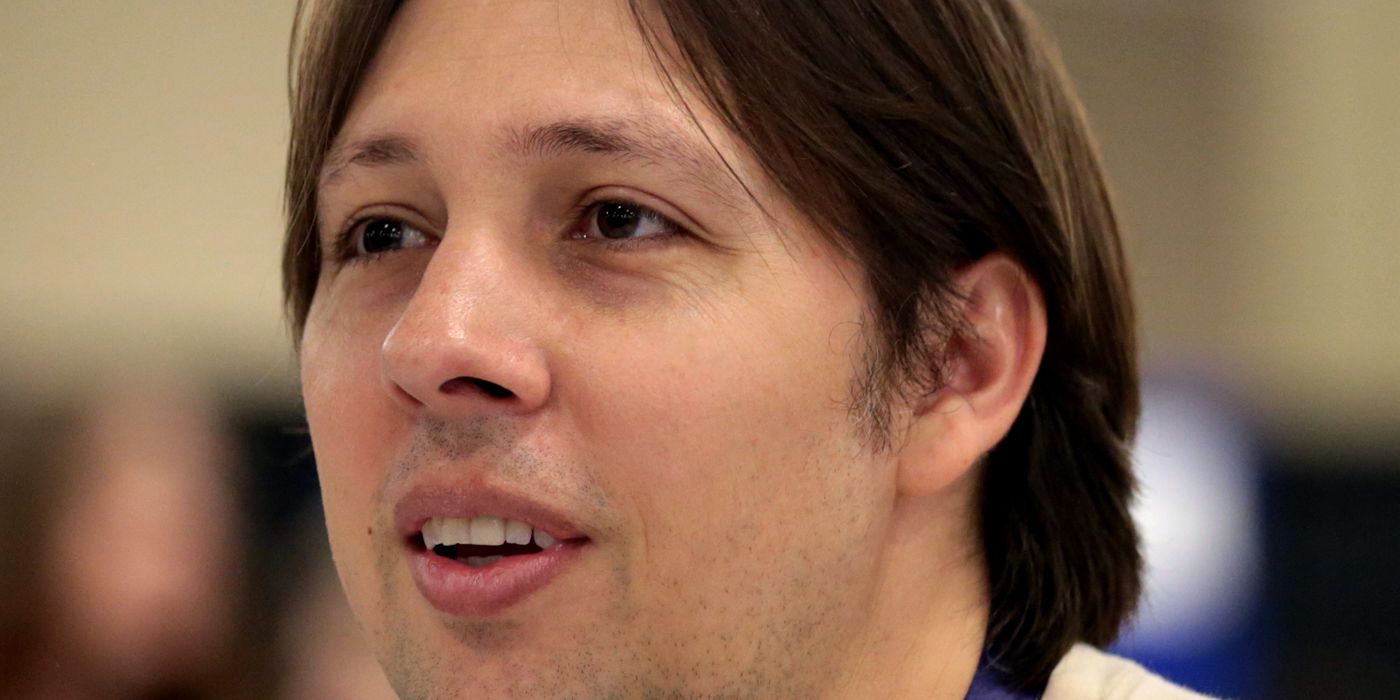
The High Valyrian word for «yes.» This was another word translated by David Peterson himself, who was kind enough to provide the translation and the pronunciation of this word and other common Valyrian phrases on Making Game of Thrones.
Oddly enough, it seems that there are no examples of the use of this word present anywhere in the show. Thankfully, when a reader has a webpage from the creator of High Valyrian himself, they know some things, Jon Snow.
Kirimvose

The High Valyrian word for «thank you.» A speaker of High Valyrian can also say «kirimvos»; therefore they have something shorter that rolls off the tongue more easily. The stress goes on the second «i» for both words. It is pronounced as four syllables, as well as a rolled «R».
Sōvētēs
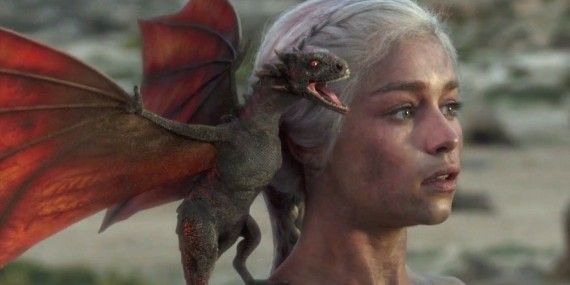
The High Valyrian word for «fly.» Daenerys Targaryen says this in the plural form to her dragons in Yunkai in season three.
The original intention was for her to say the singular form of this same word, «soves,» to a fully grown Drogon in order to have him take off from Daznak’s Pit with her atop his back, but instead she said «valahd,» the Dothraki word for «horizon;» informally the same word can mean «Giddyup!» or «Hya!»
Zaldrīzes
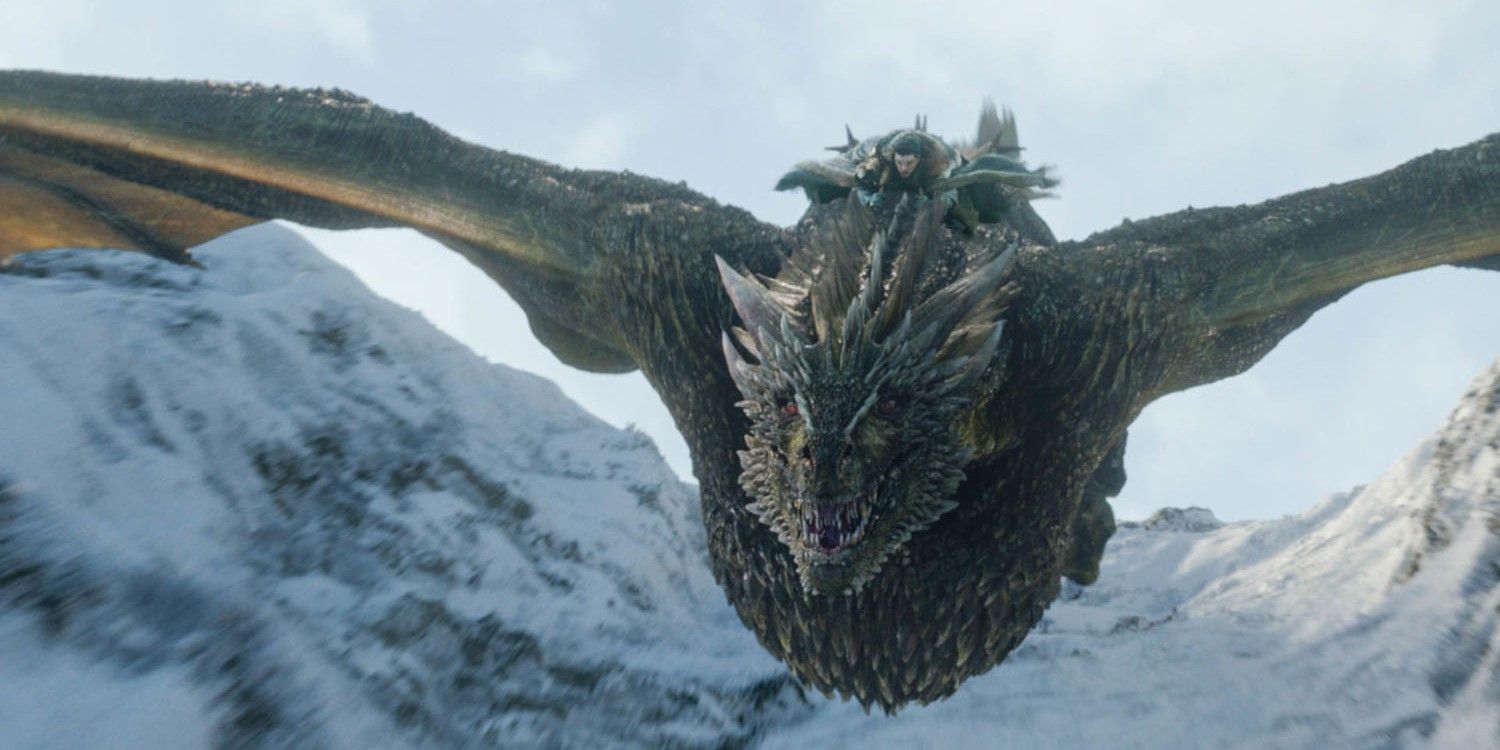
The High Valyrian word for «dragon.» Though the search would be hard for a use of the singular form of the word in the show, David Peterson himself translated the plural form of the word on the aforementioned page showcasing other common phrases translated in High Valyrian. Besides that, he translated the word as part of a phrase you might recognize from one scene in the second season and an oft-repeated meme born from its use: «Skoriot nuhyz zaldrizesse ilzi?». This is the High Valyrian for «Where are my dragons?»
Zīrtys perzys
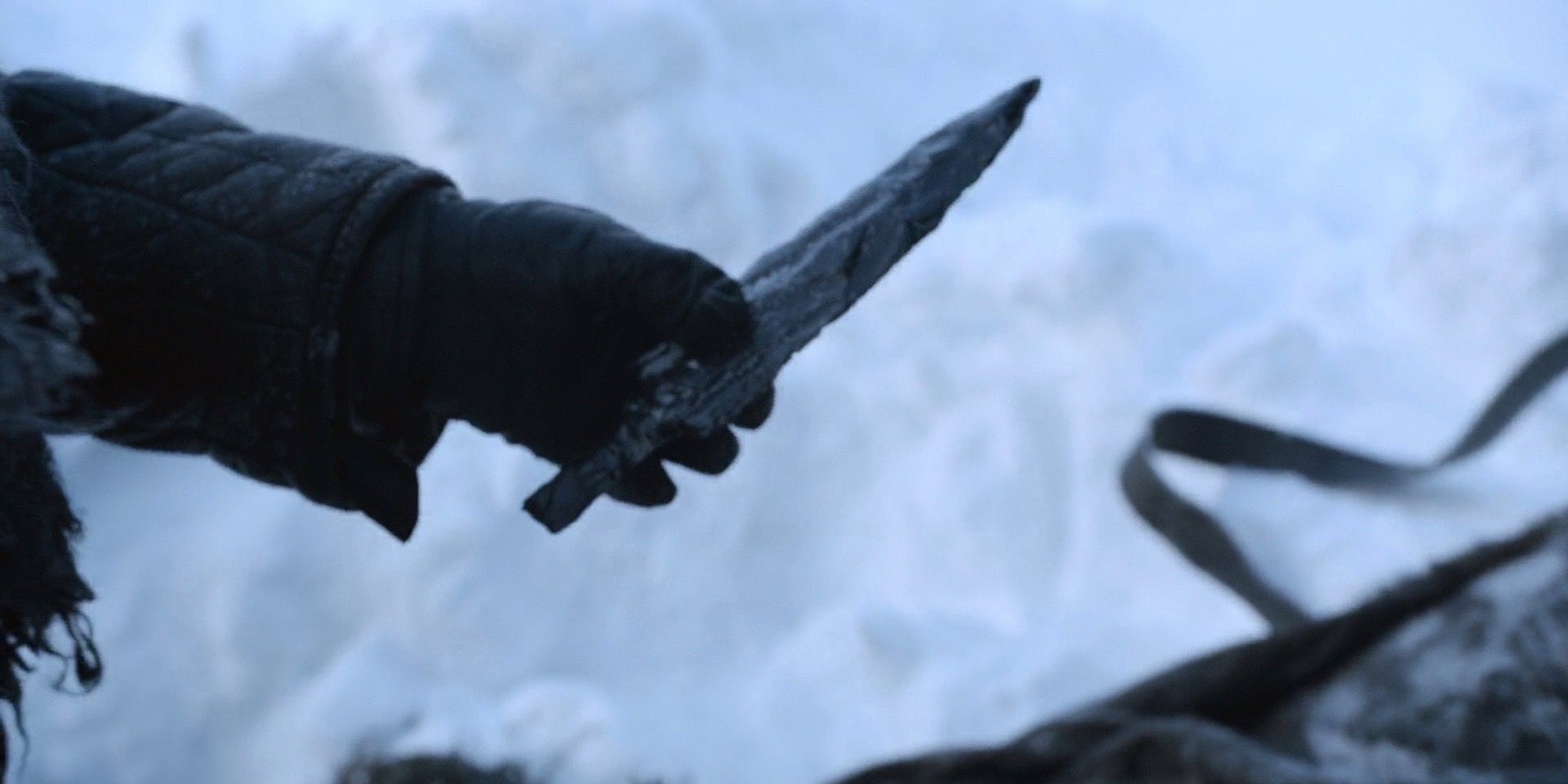
The High Valyrian for «frozen fire». These are the words for dragonglass, the common name in Westeros for a form of volcanic glass known as obsidian. Dragonglass is one of the two known substances in-universe capable of killing White Walkers, the other being Valyrian steel. Both substances can also kill the Walkers’ undead servants known as the wights.
Ironically, the Children of the Forest utilized this tool thousands of years before the story began, not only for weaponry but for the creation of the White Walkers themselves. Therefore, they created the great evil of the series to be a living weapon against the realm of men, yet somewhere down the road, they expanded their focus to become enemies of the realm of the living.
Avy jorrāelan
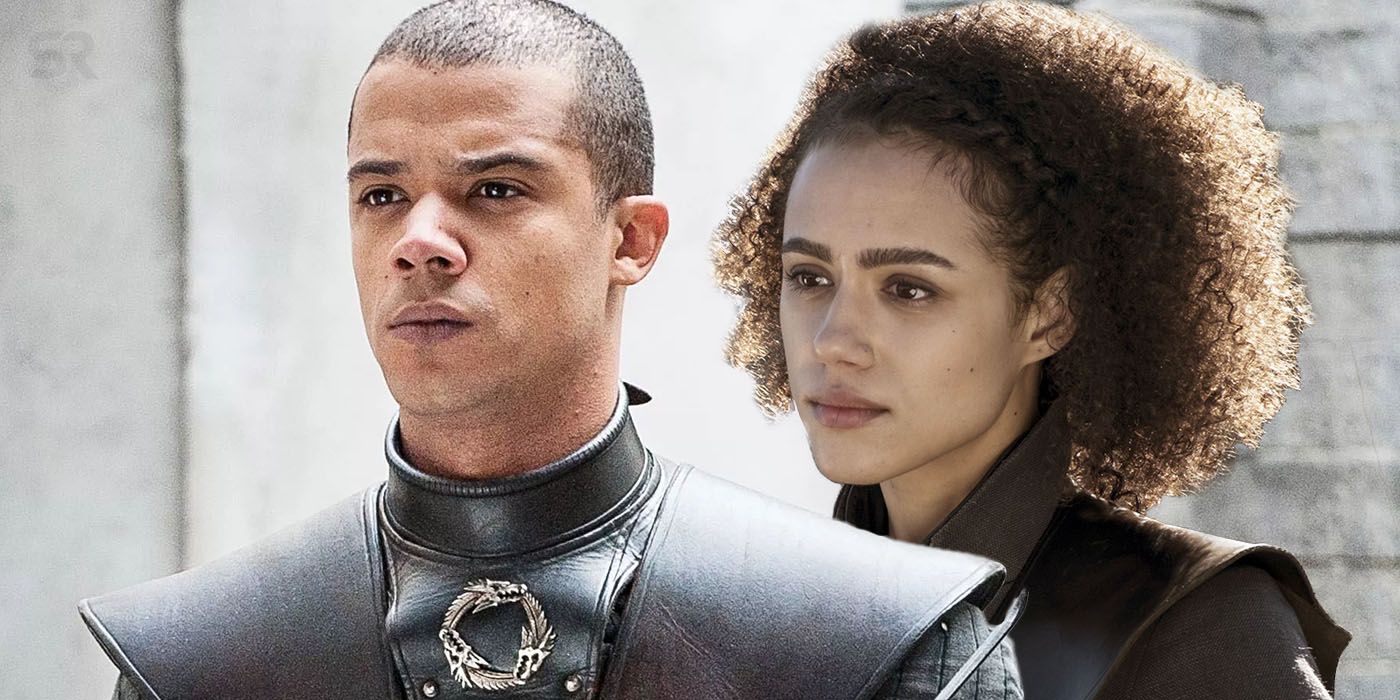
The High Valyrian for «I love you.» Those three words are regrettably words that often end in tragedy in a show as gritty as Game of Thrones. Incidents like the death of Eddard Stark and the Red Wedding can account for that, as well as the polarizing tragedy that marked the end of the show. And if Westeros had an abundance of normal marriages unlike the traditionally purely arranged ones, perhaps these words would be more frequent: «Ao ynoma dīnilūks?» That is the High Valyrian for «Will you marry me?»
Sīkudi nopāzmi!
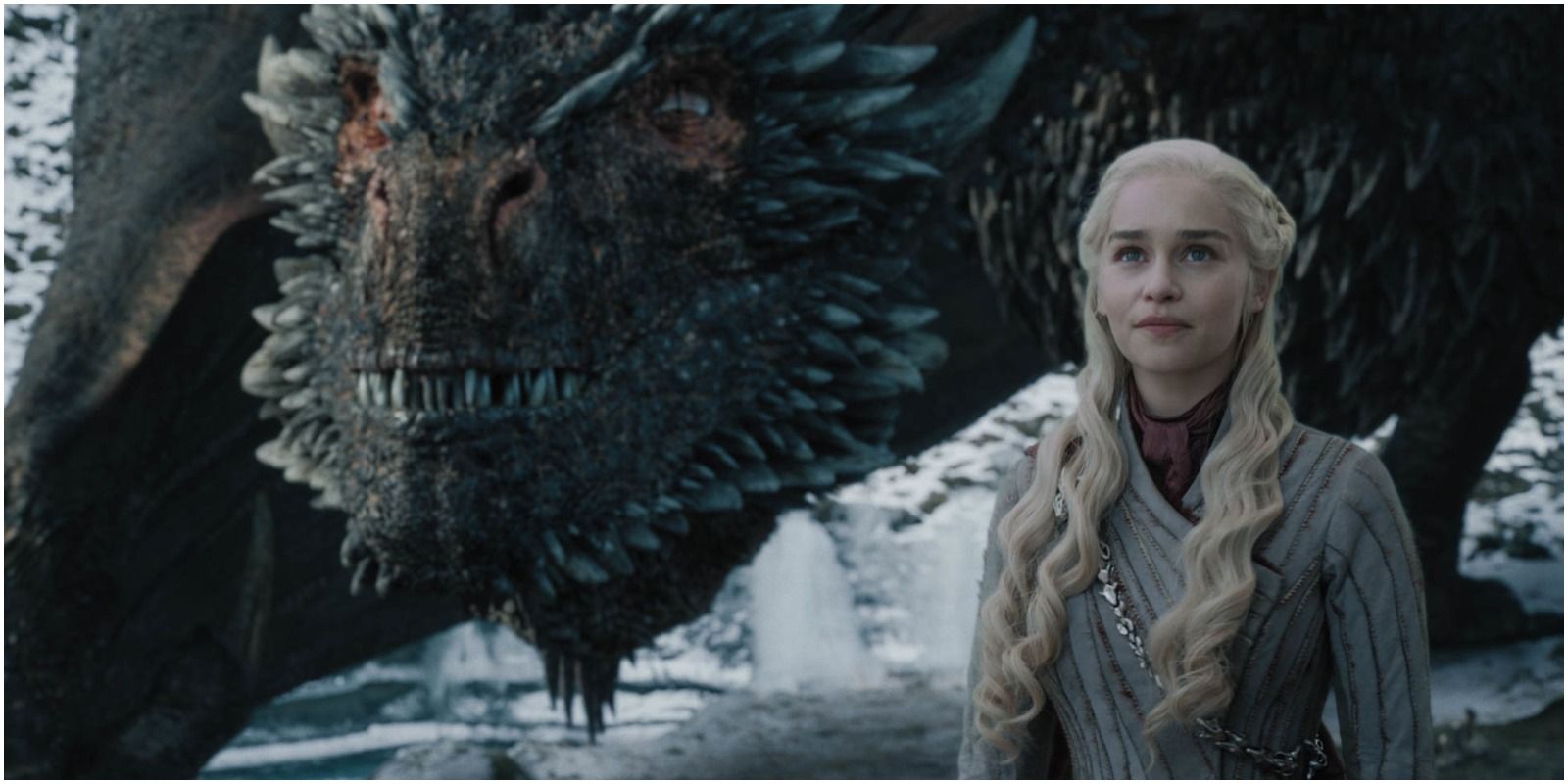
The High Valyrian for «Seven Hells!» «Seven Hells,» or «Seven Bloody Hells» as an alternative, originates from the Faith of the Seven. It is one of the key theologies in both the books and the show which author George R.R. Martin based off the medieval Catholic Church. In it, there are seven deities, seven heavens, and seven corresponding hells. The term is often used to express anger, surprise, or turmoil, but it not limited to those emotions. It could also be considered akin to an expletive in its usage, though at least in the books, it is more often used by a person of the upper-class than a lower-class one.
NEXT: 10 Times Game of Thrones Stole From Lord Of The Rings
If you watched Game of Thrones before diving into House of the Dragon, then you’ve at least encountered the word «dracarys» before, even if you can’t remember what it means.
The word—or rather, the command—was memorably involved in one of the most tragic deaths in the entire Game of Thrones series. When Missandei is beheaded by The Mountain atop the walls of King’s Landing in Season 8—Daenerys, Tyron, Grey Worm, and other friends from the North looking on—she utters «dracarys» right before she dies.
Given the meaning of «dracarys,» which we’ll explain in a second, there’s a good chance we’ll hear it again on House of the Dragon. HBO’s new Game of Thrones spin-off follows the Targaryen House (of blond hair, dragon, and unpredictable violence fame) as they navigate a civil war in Westeros roughly 200 years before the events of GoT.
More From Men’s Health
Targaryens? War? The fact that the word «dragon» is in the title of the show? We’re probably gonna hear «dracarys» left and right.
«Dracarys» is the nifty command the Targaryens use when they want their dragons to breathe fire.
Dragon fire is one of the deadliest weapons you can get in Westeros, which makes «dracarys» pretty much synonymous with major death and destruction. (By choosing «dracarys» as her last words, Missandei was telling Dany to go ham on King’s Landing. F*** s*** up. Burn it to the ground. You get the idea.)
On GoT, we saw «dracarys» used both strategically (RIP Varys) and as an expression of unbridled Targaryen rage (RIP about a zillion innocent people in King’s Landing). Which form of the fire-breathing command will we encounter in House of the Dragon? Knowing the Targaryen clan, probably a little bit of column A and a little bit of column B.
Jordyn Taylor is the Executive Digital Editor at Men’s Health. She is the co-author of ‘Best. Sex. Ever.: 200 Frank, Funny & Friendly Answers About Getting It On,’ and an adjunct professor at New York University’s Arthur L. Carter Journalism Institute. She’s covered sex, relationships, health, wellness, and LGBTQ+ issues since 2013, and has previously worked as a reporter and editor at Mic and the New York Observer.
If you watched Game of Thrones before diving into House of the Dragon, then you’ve at least encountered the word «dracarys» before, even if you can’t remember what it means.
The word—or rather, the command—was memorably involved in one of the most tragic deaths in the entire Game of Thrones series. When Missandei is beheaded by The Mountain atop the walls of King’s Landing in Season 8—Daenerys, Tyron, Grey Worm, and other friends from the North looking on—she utters «dracarys» right before she dies.
Given the meaning of «dracarys,» which we’ll explain in a second, there’s a good chance we’ll hear it again on House of the Dragon. HBO’s new Game of Thrones spin-off follows the Targaryen House (of blond hair, dragon, and unpredictable violence fame) as they navigate a civil war in Westeros roughly 200 years before the events of GoT.
More From Men’s Health
Targaryens? War? The fact that the word «dragon» is in the title of the show? We’re probably gonna hear «dracarys» left and right.
«Dracarys» is the nifty command the Targaryens use when they want their dragons to breathe fire.
Dragon fire is one of the deadliest weapons you can get in Westeros, which makes «dracarys» pretty much synonymous with major death and destruction. (By choosing «dracarys» as her last words, Missandei was telling Dany to go ham on King’s Landing. F*** s*** up. Burn it to the ground. You get the idea.)
On GoT, we saw «dracarys» used both strategically (RIP Varys) and as an expression of unbridled Targaryen rage (RIP about a zillion innocent people in King’s Landing). Which form of the fire-breathing command will we encounter in House of the Dragon? Knowing the Targaryen clan, probably a little bit of column A and a little bit of column B.
Jordyn Taylor is the Executive Digital Editor at Men’s Health. She is the co-author of ‘Best. Sex. Ever.: 200 Frank, Funny & Friendly Answers About Getting It On,’ and an adjunct professor at New York University’s Arthur L. Carter Journalism Institute. She’s covered sex, relationships, health, wellness, and LGBTQ+ issues since 2013, and has previously worked as a reporter and editor at Mic and the New York Observer.




